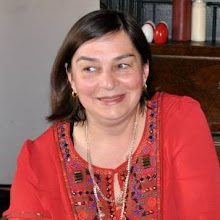Vietnamese Zen master Thich Nhat Hanh has the ability to put the most complex Buddhist theories into language anybody can understand and that’s certainly true of his book The Other Shore. In it he discusses that most baffling of Buddhist concepts – emptiness. Each chapter is based around a few lines from his translation of the Heart Sutra, otherwise known as The Insight that Brings Us to the Other Shore. As this sutra contains the line ‘whoever can see this no longer needs anything to attain’, it’s a teaching that anyone interested in Buddhism will want to consider deeply, time after time.
I try to chant the Heart Sutra every morning and I do it along with a recording by TJ Fool on Soundcloud called The Insight that Brings Us to the Other Shore. It’s not a long sutra but it contains the core Buddhist concepts of emptiness, the transformation of suffering and the path to enlightenment.
By the time I finished the last chapter, I felt a wave of happiness washing over me, which is how the understanding of emptiness affects us, even though we grasp it for a moment then find we’ve lost it again as we move back into our everyday experience of the world. Thich Nhat Hanh gives us that glimpse into the ultimate dimension of how things really are, recognising that nothing is separate and that everything is interconnected with everything else. Then we close the book and move back into the historical dimension of conventional reality where we have to see ourselves and everything around us as separate in order to get through our daily lives.
But touching the emptiness of all phenomena as separate entities gives a sense of calm and a new way to look at whatever is troubling us. I have certainly been trying to resolve difficult issues and The Other Shore helped me see them from a completely different perspective, allowing me to work on fixing problems without being caught up in too much worry.
In the final sections, Thich Nhat Hanh also explains how this fundamental teaching of Buddha has been misinterpreted by various Buddhist traditions, which I found especially helpful as I like to go to dharma talks from other traditions to understand diverse approaches. While I enjoy other traditions, there’s an authenticity and simplicity to Thich Nhat Hanh’s approach that, for me anyway, seems to touch what the Buddha actually taught.
Thich Nhat Hanh had a stroke a few years ago and no longer writes, so the new translation of the Heart Sutra (to replace his previous one) and this book are two of his last publications. In The Other Shore I find he speaks more clearly than ever before about the mistaken directions Buddhism can take, slipping into what he calls spirituality and even magic, or what I would describe as superstition. He also explains how other religions fed into Buddhism historically, with ideas about karma and reincarnation being added in, even thought they weren’t taught by Buddha. Some room for discussion on these points.
The new translation of the Heart Sutra can be found here, and the recording on Soundcloud can be found here. The Other Shore by Thich Nhat Hanh is available from online retailers in print or on Kindle. To those of you who don’t know Thich Nhat Hanh, he is possibly the most significant living zen master and he started out as a Vietnamese monk trying to work for peace between the US and Vietnam during the war in the 1960s. At that time Martin Luther King nominated him for the Nobel Peace Prize. He lives in a monastery called Plum Village in France, where people can go on retreat, and there are many groups around the UK that you can find on the coiuk.org website. I go to the one near Leicester Square on Saturday mornings – details can be found on the Heart of London Sangha website. Maybe I'll see you there!







No comments:
Post a Comment